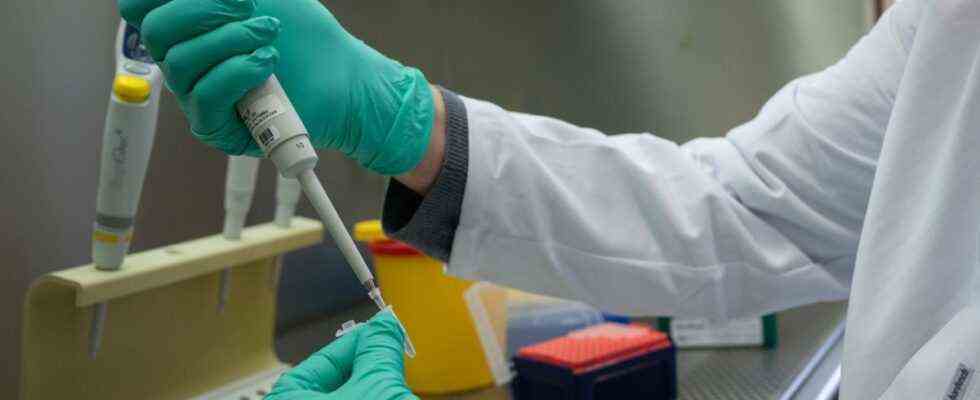After initial evidence of the Omikron variant in Germany, experts assume that there are already more cases undetected in Germany. The period in which travelers were already spreading the virus internationally is certainly weeks, says Oliver Keppler, board member at the Max von Pettenkofer Institute at the Ludwig Maximilians University in Munich. “There may be a few hundred cases in Germany.”
However, the current infection numbers in Germany cannot be associated with Omikron, that is the delta wave, says Keppler. At the Max von Pettenkofer Institute, Omikron cases were found in Bavaria. Shortly after it became known, the variant had been classified by the World Health Organization (WHO) as causing concern. Several countries around the world have now reported evidence. The Robert Koch Institute has not yet published total figures for Germany.
“In view of the delta infection dynamics, our health system is already in a dead end with its back to the wall,” says Keppler about the possible influence of the new variant on the current wave. “Now a car with a defective brake is driving towards it.” It is true that omicron properties are still difficult to assess with regard to transferability, reduction in vaccine effectiveness and the severity of the disease. What is known so far, however, gives rise to fear of a worsening of the situation. Therefore, there is now “the greatest pressure to act to break the fourth wave”.
The virologist Sandra Ciesek expects that more can only be said about the duration and extent of the international Omikron distribution in the near future. This will be learned in the next few weeks when laboratories, for example, analyze reserve samples from the past few weeks. The RKI also announced that it would analyze genome sequences obtained in the past.
The fact that European countries only recognized the variant in travelers after South Africa and other countries warned about it probably means that many cases have so far remained undetected, tweeted the Austrian vaccination expert Florian Krammer a few days ago. “It also tells us a lot about genome surveillance in some high-income countries.”
“We currently have a pronounced delta wave, which in itself is a big problem.”
During routine monitoring in Germany, the genetic makeup of five to ten percent of positive corona samples is broken down. “This is how Omikron would also be discovered in Germany,” said the Association of Accredited Laboratories in Medicine (ALM) on Tuesday. The RKI provides information on the results of these analyzes in its weekly reports; these always show data from the previous week. This is justified with the “process-related long time until the sequencing results are transmitted to the RKI”.
How Omikron could influence the fourth wave in Germany cannot yet be reliably estimated, according to Ciesek from the Frankfurt University Hospital. “We currently have a pronounced delta wave, which in itself is a big problem, which actually requires our full attention.” Omikron definitely leads to further stress in the laboratories.
Special Omikron kits are already being tested in laboratories, says Nina Beikert from the ALM board. “We assume that by the end of the week at the latest we will be able to carry out the additional PCR on the Omikron variant after the first PCR to determine an infection.” This would then have a very high informative value that an omicron is probably present. The laboratory association announced that it would be deployed in specific suspected cases, such as those returning from certain regions or their contact persons.
The frequency with which variant-specific PCR tests have been carried out in the past few weeks seems to differ greatly from one region to another. While Ciesek reports on such tests in his house for every initial diagnosis, ALM board member Michael Müller said that this procedure had been “essentially discontinued” because of the great dominance of the Delta variant.
The course of the pandemic so far has shown that predominant variants can be replaced by more contagious mutants within a relatively short period of time. The alpha variant (B.1.1.7) was reported by Great Britain a few days before Christmas 2020. In Germany, their share continued to grow at the beginning of 2021. According to RKI data, the switch to the delta variant discovered in India took place very quickly in the summer. Sars-CoV-2 has now behaved differently several times than initially expected from a corona virus, the virologist Christian Drosten said in the summer. “Alpha and Delta were absolute surprises.” No virologist expected such massive increases in the transmission rate. “This has never before happened in any other virus.” It is currently unclear whether Omikron means an even higher transfer rate or whether it has other advantages.

